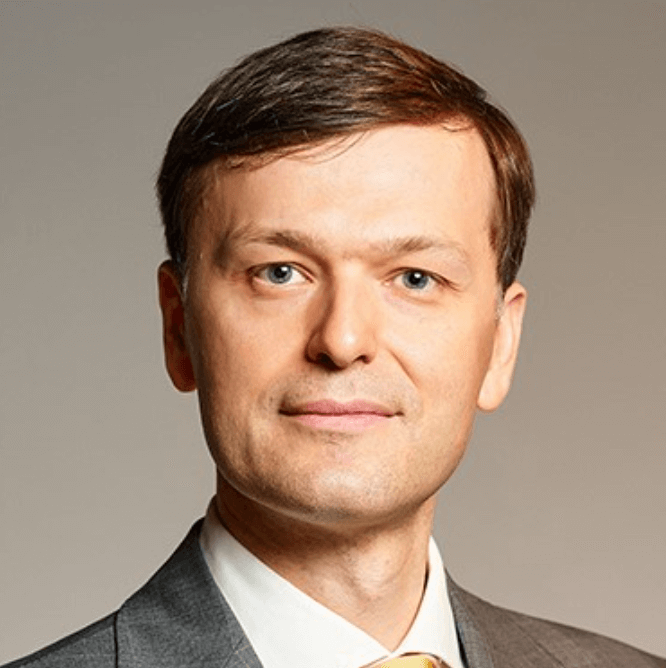On 24 February, 2022, the global terrorist state of the russian federation [sic] brutally invaded Ukraine and undermined the global security structure. It is by virtue of the combined perseverance, iron will and desire for freedom of Ukraine’s citizens and its Armed Forces that Ukraine continues defending the world against russia’s authoritarian global terrorist aspirations.
It is now up to Ukraine and its partners to create the conditions for the development of an effective and resilient national resistance movement based on volunteers. This requires adequate comprehensive training and a clear distinction between regular armed forces and territorial defense. Some of the key issues related to territorial defense and national resistance training are considered here with the aim of promoting the development of a truly effective resistance in Ukraine.
Within the original framework of Ukraine’s national resistance law, territorial defense units (both reserve and volunteer formations) are key components of the resistance. They were meant to be a well-trained and localized force operating within the territories of their registration. Territorial defense made sense because it was local and designed to support the work of the regular armed forces and organize local citizens to defend their territories from russian [sic] aggression. The current version of the law states that territorial defense units operate only in the defined territories outside of combat zones until the arrival of regular army forces (Art. 1 (2) of Ukraine’s National Resistance Law 1702).
Latest amendments to the Law on National Resistance threaten the original role of the territorial defense as a component of national resistance in its truest, localized, sense. Particularly, the recently adopted draft law № 6521 (not yet signed by the President) would allow individuals in territorial defense to be deployed to combat zones far beyond the territory of their registration. If this law is enacted, territorial defense units will effectively be converted into regular infantry of the Armed Forces of Ukraine. This will negatively impact local national resistance efforts.
Along with the territoriality concept of the Territorial Defense, another key and codified component of Ukraine’s National Resistance Law is training of Ukrainians in national resistance. It is pivotal to the survival of Ukrainian people and the state as a whole. However, training is not yet fully deployed. Moreover, apparent lack of cooperation between the Special Operation Forces of Ukraine, the Territorial Defense leadership and specialists from the departments of Civil-Military Cooperation (CIMIC) and Civil Affairs (CA), alongside Ukraine’s partners, risks nullifying effective national resistance.
After interviewing over a dozen individuals (legislators, leaders and volunteer participants of territorial defense), we found that poor understanding of the relevant National Resistance regulatory framework, lack of effective coordination and training are hindering the effective development of Ukraine’s national resistance. This results in (1) lower defense capability and thus increased risks to the territorial integrity of Ukraine and local communities; (2) significantly higher death and injury levels because of haphazard and specialization-unaligned mobilization of citizens, and (3) weakened territorial defense due to deficient system of voluntary formations of territorial communities.
During this bloody war, it is pivotal that Ukraine’s mobilized “golden” social capital is effectively trained in accordance with individual specializations and talents. Below we discuss two key issues of the national resistance – territoriality and training – in more detail. We provide recommendations on how to close the gaps between legislation and practice in order to make the most effective use of Territorial Defense units.
Issue #1: Keeping Voluntary Formations of the Territorial Defense Forces of the Armed Forces of Ukraine Local
The Law of Ukraine On the Fundamentals of National Resistance entered into force only on January 1st, 2022, and with a scandal. Far too late to have secured professional national resistance and territorial defense force training before russia’s full-scale war against Ukraine. The law does, however, provide the foundation for a comprehensive political, civilian, and military approach to effectively managing Ukraine’s complex resistance to the kremlin’s [sic] terror.
On January 27th, 2022, the Parliament adopted amendments to the National Resistance Law which distance the territorial defense away from their local territories, budgets and administrations (i.e. the resistance budget and procurement are classified and allocated to the Ministry of Defense of Ukraine, local governments will no longer approve commanders of Voluntary Formations of Territorial Communities, and volunteers are brought under the laws and regulations of the Armed Forces of Ukraine).
This territorial distancing trend continued three months later. On May 3rd, 2022, Ukraine’s parliament amended the National Resistance Law to allow for the deployment of voluntarily contracted Territorial Defense forces to the frontlines far beyond their neighborhoods or oblasts. If signed by the President, these amendments will effectively convert territorial defense units into regular infantry of the Armed Forces of Ukraine.
However, the law is only catching up with the reality on the ground. Although amendments are not yet signed, thousands of “volunteers” who signed the territorial defense contracts have already been deployed away from their home territories. One can only imagine how surprised some of them were upon learning that they could go to the frontline even before the second mobilization wave of the Armed Forces of Ukraine.
On 25 May, 2022 a petition entitled “Violation of the Law of Ukraine On the Basis of National Resistance” was launched. It calls for the President and the Cabinet of Ministers of Ukraine to withdraw volunteers of the territorial defense from the combat zone and not to sign the draft law № 6521 that would allow for such deployment.
It is important to differentiate between Territorial Defense units of the Ukrainian Army and Voluntary Formations of Territorial Communities (VFTC). There are two types of Territorial Defense contracts. Both are voluntary, but there are important differences. The first type of contract is signed by reservists or individuals with previous military experience for a period of three years. These individuals are paid and agree to serve in the Territorial Defense Forces as soldiers of the Armed Forces of Ukraine. The other type of contract is signed by citizens enlisting into the Voluntary Formations of Territorial Communities. These people are civilians and need training the most. Their contract is signed for 3 years, but is unpaid and can be terminated any time. These people do not fall under the direct command of the armed forces. They must serve under the command of a locally appointed commander of a registered VFTC.
During the interviews with us, volunteers of VFTC raised a serious issue. The former Head of Ukraine’s Territorial Defense refused to register Voluntary Formations of Territorial Communities and delayed appointment of their commanders. Non-registration effectively delegitimizes and neutralizes these local volunteer formations and threatens the national resistance. Hopefully the situation will change with the recent appointment of Major General Ihor Tantsyura as the Commander of Ukraine’s Territorial Defense Forces to replace Yuriy Halushkin.
Territorial defense and particularly Volunteer Formations of Territorial Communities who know their territory and community should be recognized as a key element of Ukraine’s national resistance. The Volunteer formations should be organized, registered and allotted a commander who not only implements the requirements of the armed forces but also serves the locality in a timely fashion. The departments for Civil Military Cooperation (CIMIC) and Civil Engagement can play an important role here.
Issue #2: it is necessary to train Voluntary Formations of Local Communities and the Territorial Defense of the Armed Forces of Ukraine and use human capital in the most effective way
Men and women who signed up to the Territorial Defense forces did not enlist to the regular Armed Forces. They likely, and rightfully, believed there was a territorial and functional difference between them. In fact, many volunteers believed they were signing up to a sort of semi-armed regional Neighborhood Watch program. Today, rather than being given the option to learn the key concepts of civil military cooperation (CIMIC) or, if their specializations are key to national resistance, to train others, poorly trained civilians in the voluntarily formed territorial defense units are being deployed to the frontlines – in the absence of necessary legislation.
Mobilized individuals (in the regular armed forces) are not always deployed in accordance with their military specialization or civil specialization that can be useful for Ukraine’s defense. The same is true for volunteers of territorial defense whose civilian specializations may be more valuable for the resistance and CIMIC than their going to the frontline as infantry. The following cases are common examples of such mismanagement that is harmful for Ukraine’s defense:
- An internally displaced person, a professor in his mid-fifties who specializes in criminal law, psychology and human rights, is fluent in English, with the rank of colonel within the Ministry of Internal Affairs, with deep expertise in institutional reform, and an experienced international peace keeper is mobilized as a lieutenant and deployed to the frontlines in an infantry unit. Clearly, his role in defending Ukraine is not being instrumentalized in the most effective way in light of the over 10,000 criminal investigations opened by Ukraine’s Prosecutor General’s office against russians suspected of having committed human rights abuses and war crimes.
- IT experts who should be working with Ukraine’s cyber defense forces are being sent to the front lines. Some, after voluntarily joining the territorial defense believing they would be protecting their regions, are now artillery men in heavy battles in the East and South of Ukraine. The Director of the Software Association of Ukraine was killed by artillery fire. This is despite the letter issued by the Minister of Digital Transformation on 10 March, 2022 where he states that such expertise is required in cyberspace and not in the frontline trenches.
The basis of national resistance is community-based territorial defense units whose members cooperate with the Armed Forces of Ukraine to defend us all against russia’s armed aggression. Proper CIMIC should be employed to avoid further escalation of the russia-imposed social-political catastrophe. Volunteers of territorial defense and Voluntary Formations of Local Communities should be properly trained to protect Ukraine’s main asset – its social capital.
Time to recognize and organize the interconnectivity
NATO and other foreign partners have provided Ukraine with high-level guidance on “resistance” in general and “civil resistance”. However, resources such as the NATO Resistance Operating Concept focus on descriptive theory. Although valuable, it is not enough. Ukraine is in the urgent need of a practical playbook for civil resistance and a coordinated training program where Ukrainian and international experts will train the trainers who will then train citizens with a focus on planning and orchestration of civil resistance.
The preparation of citizens for national resistance is defined in Ukraine’s National Resistance Law (see Box below). Moreover, Article 4 of the Voluntarily Formed Territorial Defense contract states that Ukraine is in fact contractually obliged to provide proper training to the territorial defense volunteers.
The current territorial defense training is allegedly underfunded (its financing is classified by the Ministry of Defense), very basic, very short, and centers on hard power i.e. (armed) force training. Furthermore, there is very weak cooperation between the Special Operation Forces of Ukraine, the Territorial Defense leadership and specialists from the departments of Civil-Military Cooperation (CIMIC) and Civil Affairs (CA). This cooperation must be very intense at all levels and within them.
The training must consist of more than hard power. It should include the strategic communication of complex and interlinked soft power components (e.g., psychological, ethnic, cultural, religious, ideological and technological issues, information operations, psychological operations, special operations), practical training in preliminary combat first aid, safety (i.e., improvised explosive device and munition recognition; training in chemical, biological, radiological and nuclear defense, electronic warfare, cyber security). It must also include training in peace support, non-combatant evacuation operations, humanitarian assistance, countering of irregular activities (e.g., counter-insurgency, counterterrorism and counter-criminality), stabilization and reconstruction. Civil-military interaction must incorporate non-military expert advice and factors, promote local ownership and build local capacity to resist russian aggression that will allow saving lives of Ukrainians in this bloody war.
Key Terms as Defined by The Law on National Resistance No. 1702 IX
National Resistance: A set of measures organized and implemented to promote the defense of Ukraine by involving the citizens of Ukraine in actions aimed at ensuring military security, sovereignty and territorial integrity of the state, deterring and repelling aggression and inflicting unacceptable losses on the enemy with the aim of forcing the enemy to stop the armed aggression against Ukraine.
Preparation of citizens of Ukraine for national resistance – a set of measures taken by state bodies and local governments in order to form patriotic consciousness and sustainable motivation, their acquisition of knowledge and practical skills necessary for the protection of Ukraine.
Territorial defense: A system of national, military and special measures taken in peacetime and during special periods to counter military threats, as well as to assist in protecting the population, territories, environment and property from emergencies.
Volunteer of the Territorial Defense Forces of the Armed Forces of Ukraine: A citizen of Ukraine or a foreigner or stateless person who has been living in Ukraine legally for the past five years and is voluntarily enlisted in the Voluntary Formation of the Territorial Defense Forces of the Armed Forces of Ukraine.
Territorial Defense Zone – a part of the land territory of Ukraine which is included in the territory of the relevant military-land zone and the boundaries of which coincide with the administrative boundaries of the Autonomous Republic of Crimea, oblasts, cities of Kyiv, Sevastopol.
Attention
The authors do not work for, consult to, own shares in or receive funding from any company or organization that would benefit from this article, and have no relevant affiliations




